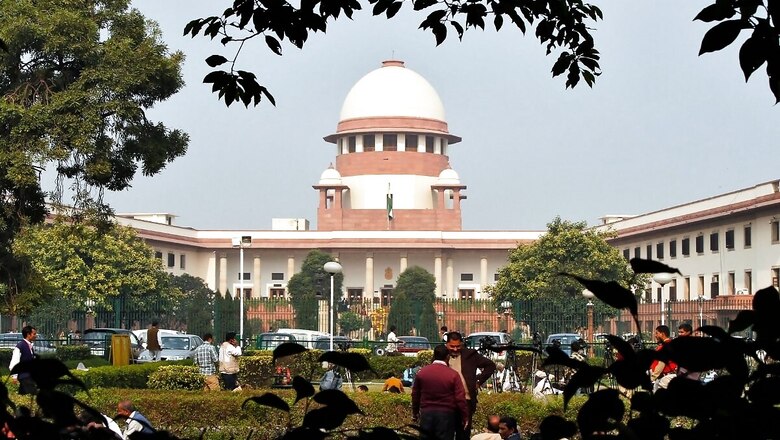
views
The Supreme Court Thursday said contempt action can be proceeded only in respect of established wilful disobedience of the order of the Court. A bench comprising Justices A M Khanwilkar and B R Gavai made the observation while discharging show cause notices to the authorities issued in respect of annulment of recruitment process of some employees of Uttar Pradesh Jal Nigam.
The apex court was hearing a batch of pleas challenging the orders issued by the Chief Engineer of Uttar Pradesh Jal Nigam at Lucknow pursuant to its judgment. The top court in its judgement had directed the Uttar Pradesh Chief Engineer to comply with the judgement of the Allahabad High Court of November 28, 2017 in a batch of writ petitions.
In pursuance of the aforementioned decision of this Court, the Chief Engineer issued order dated December 4, 2018, thereby reengaging the petitioners and other appointees to their previous place of posting. However, with a caveat that the said appointment was subject to the liberty granted by this Court and that no arrears would be paid by the respondent corporation. This order of the chief engineer, according to the contempt petitioners, is in the teeth of the decision of the top court and, therefore, the respondents be proceeded for having committed wilful disobedience of the order of this Court.
Deliberating on it, the bench said It is well settled that contempt action ought to proceed only in respect of established wilful disobedience of the order of the Court. In exercising contempt jurisdiction, the primary concern must be whether the acts of commission or omission can be said to be contumacious conduct of the party who is alleged to have committed default in complying with the directions given in the judgment and order of the Court, the bench said.
While examining the submissions of the petitioners,, the bench noted that the orders passed by the High Court and the apex court do not contain explicit direction to reinstate the petitioners with continuity of service and back wages as such. "Instead, the expression used is only to permit the petitioners to work on the posts" which were held by them at the time of their termination and "to pay them regular salary month by month" and "as and when the same accrues to them. Thus understood, it is not a case of wilful disobedience of the orders of the Court.", it said. The apex court also granted liberty to the petitioners therein including applicants in intervention/impleadment applications to pursue their remedy before the High Court by way of writ petition under Article 226 of the Constitution, if so advised. That writ petition be decided on its own merits in accordance with law keeping in mind the observations made in this judgment along with other pending or fresh writ petitions involving similar issues, it said.
Read all the Latest News, Breaking News and Coronavirus News here.



















Comments
0 comment